Related Research Articles

Eugenio Montale was an Italian poet, prose writer, editor and translator, recipient of the 1975 Nobel Prize in Literature and one of the finest literary figures of the 20th century.
Tiziano Fratus is an Italian poet and publisher.

Salvatore Quasimodo was an Italian poet and translator, awarded the 1959 Nobel Prize in Literature "for his lyrical poetry, which with classical fire expresses the tragic experience of life in our own times". Along with Giuseppe Ungaretti and Eugenio Montale, he was one of the foremost Italian poets of the 20th century.
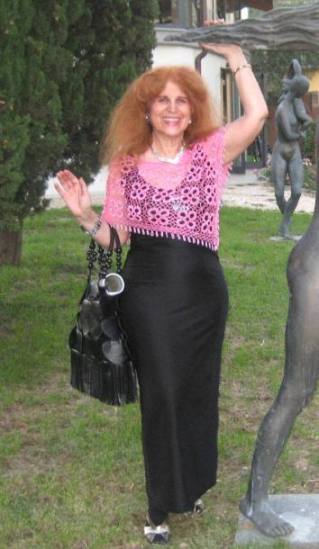
Anna Balsamo is an Italian poet born in Pisa, Italy, living and working in Florence, Italy.
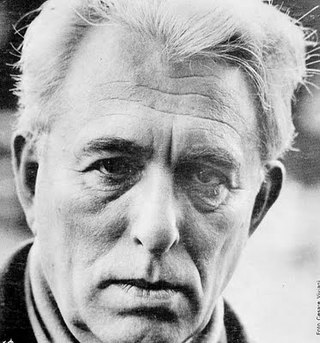
Franco Fortini was the pseudonym of Franco Lattes, an Italian poet, writer, translator, essayist, literary critic and Marxist intellectual.
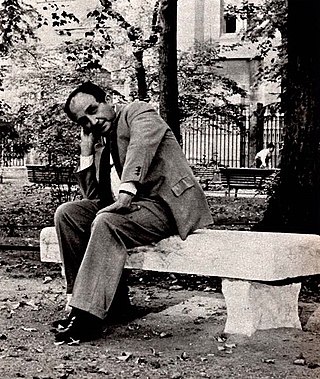
Alfonso Gatto was an Italian writer. Along with Giuseppe Ungaretti he is one of the foremost Italian poets of the 20th century and a major exponent of hermetic poetry.
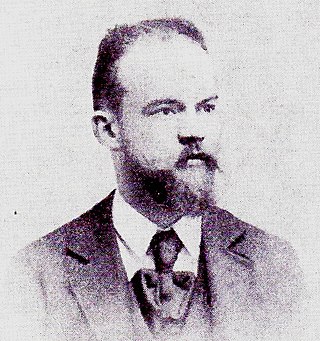
Giuseppe Rensi was an Italian philosopher.
Giulia Niccolai was an Italian photographer, poet, novelist, and translator.
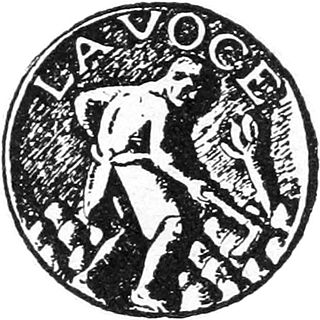
La Voce was an Italian weekly literary magazine which was published in Florence, Italy, between 1908 and 1916. The magazine is also one of the publications which contributed to the cultural basis of the early forms of Fascism. It also contributed to the development of the concept of Europeanism.
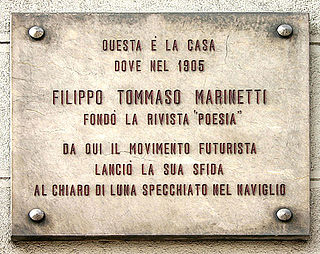
Poesia is an Italian magazine founded by Filippo Tommaso Marinetti in Milan in 1905 which was closely associated with the Italian Futurist movement. During its early existence a total of thirty-one issues were published until the 1920s. It was headquartered in Verona.
Comunità was a cultural magazine published in Rome, Italy. The magazine was in circulation between 1946 and 1960.

Barbara Carle is a French-American poet, critic, translator and Italianist. She is Professor Emerita of Italian at California State University Sacramento.
Il Frontespizio was an art and literary magazine, which had a Catholic perspective. The magazine existed between 1929 and 1940 and was based in Florence, Italy.
Enrico Falqui was an Italian writer and literary critic.
Alfredo Lucio Esposito, also known under the pseudonym of Alfredo Fiorani, was an Italian poet, writer, essayist and man of letters.

Virgil Schönbeck, known by his pen name Virgilio Giotti, was an Italian poet writing both in Italian and in the Triestine dialect. Giotti's poetry "which is not so much linked to the vernacular tradition as to contemporary poetry in the Italian language, from Pascoli and the Crepuscolari to hermeticism, uses the dialect to give more intimate vibration to its lyrical motifs, now inspired by a loving or familiar, serene or painful intimacy, now by nature, by the landscape, by the minute life of his city; in forms that from the musicality of the canzonetta approach more and more, and with ever greater grace, an epigrammatic essentiality."
Liriche e idilli is a collection of poems by Italian poet Virgilio Giotti. The poems are in the Italian language, and were published in 1931 in Florence in the homonym volume by Solaria. The volume was reviewed by Eugenio Montale for Pegaso and by Andrea Grande for l'Italia letteraria.
Lo Stato was a monthly political and finance magazine which existed in the Fascist Italy between 1930 and 1943. Its subtitle was Rivista di scienze politiche e giuridiche.

Sapere is a popular science magazine that has been in circulation since 1935 and is based in Rome, Italy. It is one of the earliest Italian publications in its category.
References
- 1 2 M. D. Z (March 1934). "Recent Magazines". Poetry. 43 (6): 348–354. JSTOR 20579392.
- 1 2 "Adriano Grande". Oxford Reference.
- 1 2 Massimiliano Manganelli (2002). "Grande, Adriano". Dizionario Biografico degli Italiani (in Italian). Vol. 58.
- 1 2 "Circoli rivista di poesia" (in Italian). Biblioteca Digitale.
- ↑ Simone Castaldi (2010). Drawn and Dangerous: Italian Comics of the 1970s and 1980s. Jackson, MS: University Press of Mississippi. p. 55. ISBN 978-1-60473-777-6.
- 1 2 Ruth Ben-Ghiat (September 1995). "Fascism, Writing, and Memory: The Realist Aesthetic in Italy, 1930-1950". The Journal of Modern History . 67 (3): 627–665. doi:10.1086/245175. S2CID 143577836.
- ↑ "Book presentation and readings". Italian Cultural Institute in New York. 27 October 2014. Archived from the original on 4 March 2016. Retrieved 2 May 2015.
- ↑ Daniela La Penna (2018). "Habitus and Embeddedness in the Florentine Literary Field: The Case of Alberto Carocci (1926–1939)". Italian Studies. 73 (2): 138. doi: 10.1080/00751634.2018.1444536 . S2CID 218693230.
- ↑ "Circoli: Rivista di Poesia" (in Italian). Fondazione Gramsci. Retrieved 23 January 2022.